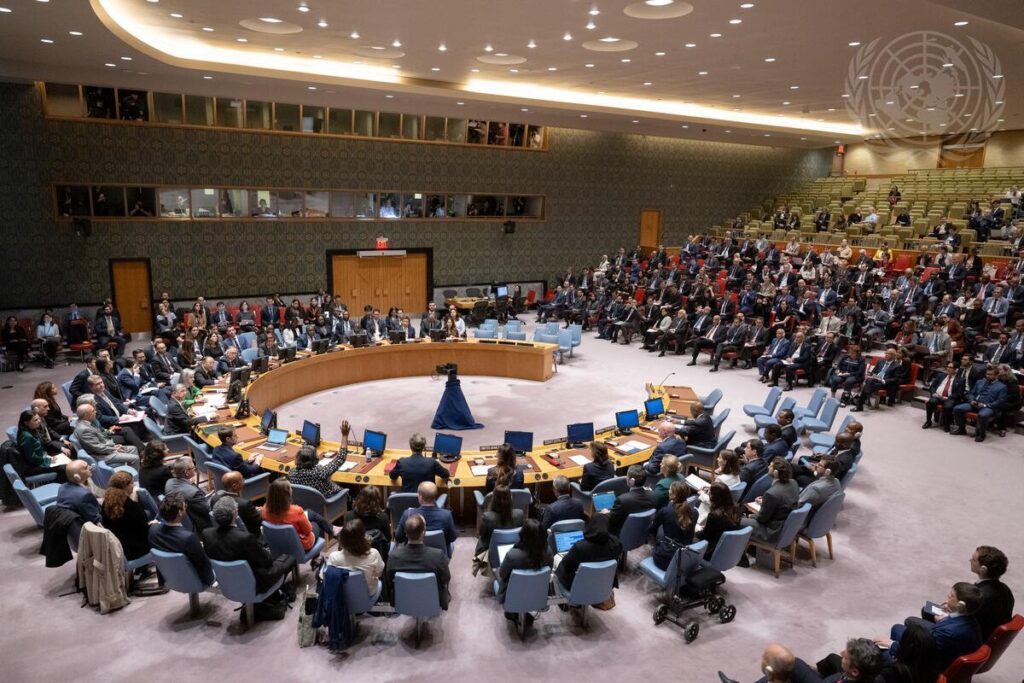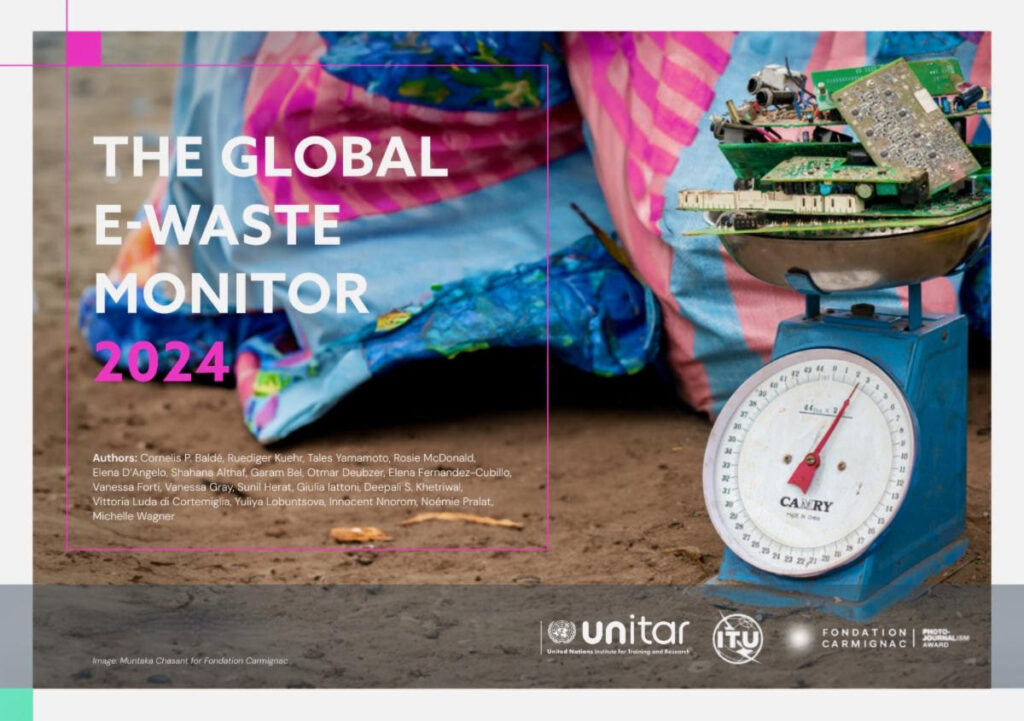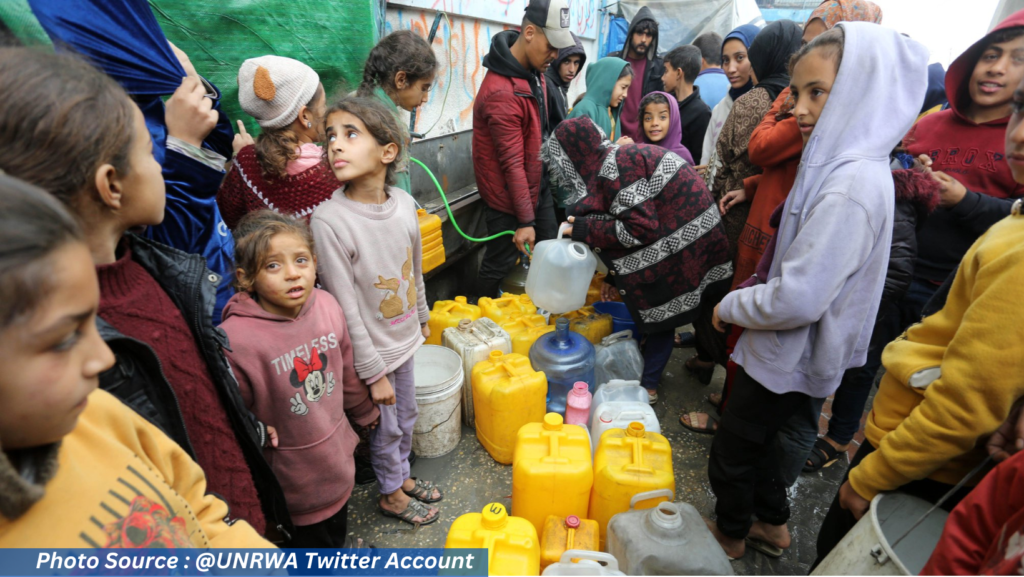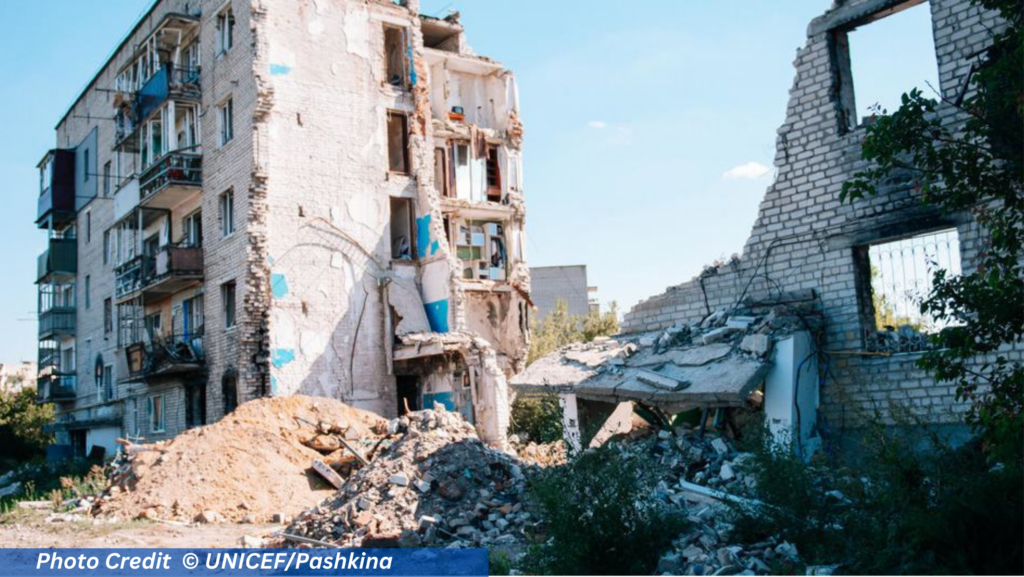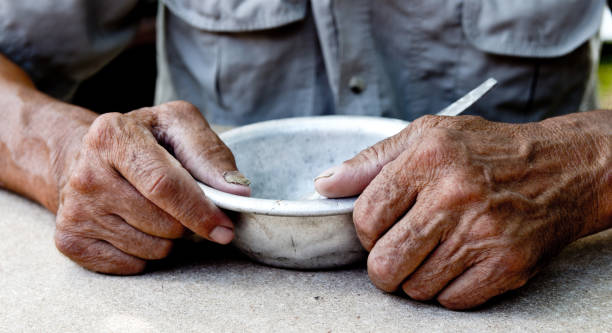A record 62 million tonnes (Mt) of e-waste was produced in 2022, Up 82% from 2010; On track to rise another 32%, to 82 million tonnes, in 2030; Billions of dollars worth of strategically-valuable resources squandered, dumped; Just 1% of rare earth element demand is met by e-waste recycling.
Geneva / Bonn, March 20, 2024 – The world’s generation of electronic waste is rising five times faster than documented e-waste recycling, the UN’s fourth Global E-waste Monitor (GEM) reveals today. The 62 million tonnes of e-waste generated in 2022 would fill 1.55 million 40-tonne trucks, roughly enough trucks to form a bumper-to-bumper line encircling the equator, according to the report from ITU and UNITAR.
Meanwhile, less than one quarter (22.3%) of the year’s e-waste mass was documented as having been properly collected and recycled in 2022, leaving US$ 62 billion worth of recoverable natural resources unaccounted for and increasing pollution risks to communities worldwide.
Read the full Global E-waste Monitor report: www.globalewaste.org
Contacts: Ruediger Kuehr, SCYCLE, UNITAR, +49 228 815 0213/4, ruediger.kuehr@unitar.org – David Hirsch, ITU, +41 22 730 5092; pressinfo@itu.int –Terry Collins, +1 416 878 8712; tc@tca.tc
Worldwide, the annual generation of e-waste is rising by 2.6 million tonnes annually, on track to reach 82 million tonnes by 2030, a further 33% increase from the 2022 figure. E-waste, any discarded product with a plug or battery, is a health and environmental hazard, containing toxic additives or hazardous substances such as mercury, which can damage the human brain and coordination system. The report foresees a drop in the documented collection and recycling rate from 22.3% in 2022 to 20% by 2030 due to the widening difference in recycling efforts relative to the staggering growth of e-waste generation worldwide.
Challenges contributing to the widening gap include technological progress, higher consumption, limited repair options, shorter product life cycles, society’s growing electronification, design shortcomings, and inadequate e-waste management infrastructure. The report underlines that if countries could bring the e-waste collection and recycling rates to 60% by 2030, the benefits – including through minimizing human health risks – would exceed costs by more than US $38 billion. It also notes that the world “remains stunningly dependent” on a few countries for rare earth elements, despite their unique properties crucial for future technologies, including renewable energy generation and e-mobility.
Comments: “Amidst the hopeful embrace of solar panels and electronic equipment to combat the climate crisis and drive digital progress, the surge in e-waste requires urgent attention.” –Nikhil Seth, Executive Director, UNITAR
“From discarded televisions to dumped telephones, an enormous amount of e-waste is generated around the world. The latest research shows that the global challenge posed by e-waste is only going to grow. With less than half of the world implementing and enforcing approaches to manage the problem, this raises the alarm for sound regulations to boost collection and recycling. The Global E-waste Monitor is the world’s foremost source for e-waste data allowing us to track progress overtime and to make critical decisions when it comes to transitioning to a circular economy for electronics” – Cosmas Luckyson Zavazava, Director, ITU Telecommunication Development Bureau
“No more than 1% of demand for essential rare earth elements is met by e-waste recycling. Simply put: Business as usual can’t continue. This new report represents an immediate call for greater investment in infrastructure development, more promotion of repair and reuse, capacity building, and measures to stop illegal e-waste shipments. And the investment would pay for itself in spades.” – Kees Baldé, lead author, UNITAR
“Many in today’s society use multiple computers and phones, an ever-growing number of new appliances, monitors and sensors, e-bikes, e-scooters, clothes, toys, and furniture with embedded electronics, electric tools, and energy-saving equipment such as LEDs, photovoltaics, and heat pumps. Urban and remote areas are increasingly connected to the Internet, and a growing number of data centers cater to the needs of the digital transformation. In the face of all this, concrete steps are urgently needed to address and reduce e-waste. Improved e-waste management could result in a global net positive of US $38 billion, representing a significant economic opportunity while addressing climate change and health impacts.” – Ruediger Kuehr, Senior Manager, Sustainable Cycles (SCYCLE) Programme, UNITAR / Adjunct Professor, University of Limerick (Ireland)
The Global E-waste Monitor shows that we are currently wasting US $91 billion in valuable metals due to insufficient e-waste recycling. We must seize the economic and environmental benefits of proper e-waste management; otherwise, the digital ambitions of our future generations will face significant risks.” – Vanessa Gray, Head, Environment & Emergency Telecommunications Division, ITU Telecommunication Development Bureau
*******
By the numbers: –62 million tonnes: e-waste generated in 2022, equal to the weight of 107,000 of world’s largest (853-seat), heaviest (575 tonne) passenger aircraft – enough to form an unbroken queue from New York to Athens, from Nairobi to Hanoi, or from Hong Kong to Anchorage.
–14 million tonnes (22.3%): estimated mass of e-waste trashed, mostly landfilled, in 2022.
–31 million tonnes: estimated weight of metals embedded in e-waste in 2022, along with 17 million tonnes of plastics and 14 million tonnes of other materials (minerals, glass, composite materials, etc.)
–US $91 billion: The value of metals embedded in 2022 e-waste, including US $19 billion in copper, US $15 billion in gold, and US $16 billion in iron.
–US $28 billion: value of secondary raw materials (mostly iron) reclaimed by “urban mining” of e-waste in 2022
–900 million tonnes: Primary ore extraction avoided by reclaiming materials through documented e-waste recycling
–93 million tonnes: CO2-equivalent emissions avoided by formal e-waste management – recaptured refrigerants (41 million tonnes), avoided metals mining (52 million tonnes).
Recycling rates: 42.8%: Formally documented collection and recycling rates in Europe
<1%: Formally recycled e-waste in African countries. ~50% (30 million tonnes): E-waste generated by Asian countries (of which relatively few have enacted legislation or established clear e-waste collection targets).
–17.6 kg: Per capita e-waste generation in Europe, followed by Oceania (16.1 kg) and the Americas (14.1 kg). These regions also have the highest documented per capita collection and recycling rates (7.5 kg in Europe, 6.7 kg in Oceania and 4.2 kg in the Americas).
–16 million tonnes: e-waste collected and recycled outside of formal systems in high- and upper-middle income countries that have developed e-waste management infrastructure.
–18 million tonnes: e-waste managed mostly by the informal sector in low and lower-middle income countries with no e-waste management infrastructure. Any material values recovered by the informal sector are largely (perhaps more than) offset by extremely high health and environmental costs.
–5.1 million tonnes (8.2% of the global total): e-waste shipped across borders in 2022, of which ~3.3 million tonnes (65%) was shipped from high-income to middle- and low-income countries through uncontrolled, undocumented movements.
E-waste by category, selected examples: —33% (20.4 million tonnes): Proportion of e-waste made up of small devices (e.g. toys, microwave ovens, vacuum cleaners, e-cigarettes), of which 12% are recycled. —4.6 million tonnes: e-waste in the small IT and telecommunication equipment category (e.g. laptops, mobile phones, GPS devices, routers), with only 22% documented collection and recycling rate. —2.4 million tonnes: Expected mass of retired photovoltaic panels in 2030, four times as much as the 600,000 tonnes in 2022.
Among the report’s many observations: Typically, collection and recycling rates are highest for heavier and bulkier equipment categories, such as large devices, temperature exchange equipment, screens and monitors.81 countries had e-waste legislation in 2023, up from 78 in 2019. Of the 81 countries, 67 had a legal instrument governing e-waste management with provisions promoting extended producer responsibility (EPR).
The enforcement of e-waste policy, legislation, and regulation “remains a genuine challenge globally, and the stagnation of the global e-waste collection and recycling rate is likely exacerbated by the fact that only 46 countries have collection rate targets and only 36 have recycling rate targets.”
Selected report infographics (available at https://bit.ly/3wcjfz5).
E-waste at a formal European recycling centre. Credit R. Kuehr, UNITAR. All high-res images at https://bit.ly/3wcjfz5
The Global E-waste Monitor. Since 2014, the Global E-waste Monitor (www.globalwaste.org) has been the world’s foremost source of up-to-date data and reporting on progress in policy, regulation, and offering projections. The 2024 edition is a collaborative product of the Global E-waste Statistics Partnership with support from the Fondation Carmignac.
*****
The UN Institute for Training and Research (UNITAR) – As a dedicated training arm of the United Nations System, the United Nations Institute for Training and Research (UNITAR) provides innovative learning solutions to individuals, organizations and institutions to enhance global decision-making and support country-level action for shaping a better future. UNITAR was created in 1963 to train and equip young diplomats from newly independent UN Member States with the knowledge and skills needed to navigate through the diplomatic environment. Over the years, UNITAR has acquired unique expertise and experience in designing and delivering a variety of training and learning activities, benefiting learners mainly from developing countries. With the strategy fully aligned with the 2030 Agenda, we support Governments and other stakeholders to achieve Sustainable Development Goals.
The Bonn, Germany-based Sustainable Cycles (SCYCLE) Programme, hosted by UNITAR, provides world-class research and action on e-waste. SCYCLE aims to enable societies to reduce the environmental burden caused by the production, consumption and disposal of ubiquitous goods.
The International Telecommunication Union. itu.int – The International Telecommunication Union (ITU) is the United Nations specialized agency for information and communication technologies (ICTs), driving innovation in ICTs together with 193 Member States and a membership of over 1,000 companies, universities, and international and regional organizations. Established in 1865, it is the intergovernmental body responsible for coordinating the shared global use of the radio spectrum, promoting international cooperation in assigning satellite orbits, improving communication infrastructure in the developing world, and establishing the worldwide standards that foster seamless interconnection of a vast range of communications systems. From broadband networks to cutting-edge wireless technologies, aeronautical and maritime navigation, radio astronomy, oceanographic and satellite-based earth monitoring as well as converging fixed-mobile phone, Internet and broadcasting technologies, ITU is committed to connecting the world.
Fondation Carmignac. fondationcarmignac.com – Fondation Carmignac was founded in 2000 by Edouard Carmignac, a French entrepreneur, CEO and Chairman of asset management company Carmignac. Today, it is structured around three main pillars: the Carmignac Photojournalism Award, which annually funds the production of investigative photo reportage on human rights violations and geo-strategic issues, the Carmignac Collection, which has over 300 works of contemporary art, and Villa Carmignac, an art venue offering annual exhibitions and a rich cultural programme in a 2000-square-meter gallery set in a 15-hectare estate at the heart of a protected site on Porquerolles island.
Contacts:
Ruediger Kuehr, SCYCLE, UNITAR, +49 228 815 0213/4, ruediger.kuehr@unitar.org
David Hirsch, ITU, +41 22 730 5092; pressinfo@itu.int
Terry Collins & Assoc. | www.tca.tc | @TerryCollinsTC | LinkedIn.com/in/terrycollins, Toronto, M6R1L8 Canada
United Nations correspondent journalists – United Nations correspondent journalists – United Nations correspondent journalists – United Nations journalism articles – United Nations journalism articles – United Nations journalism articles – United Nations News – United Nations News – United Nations News

